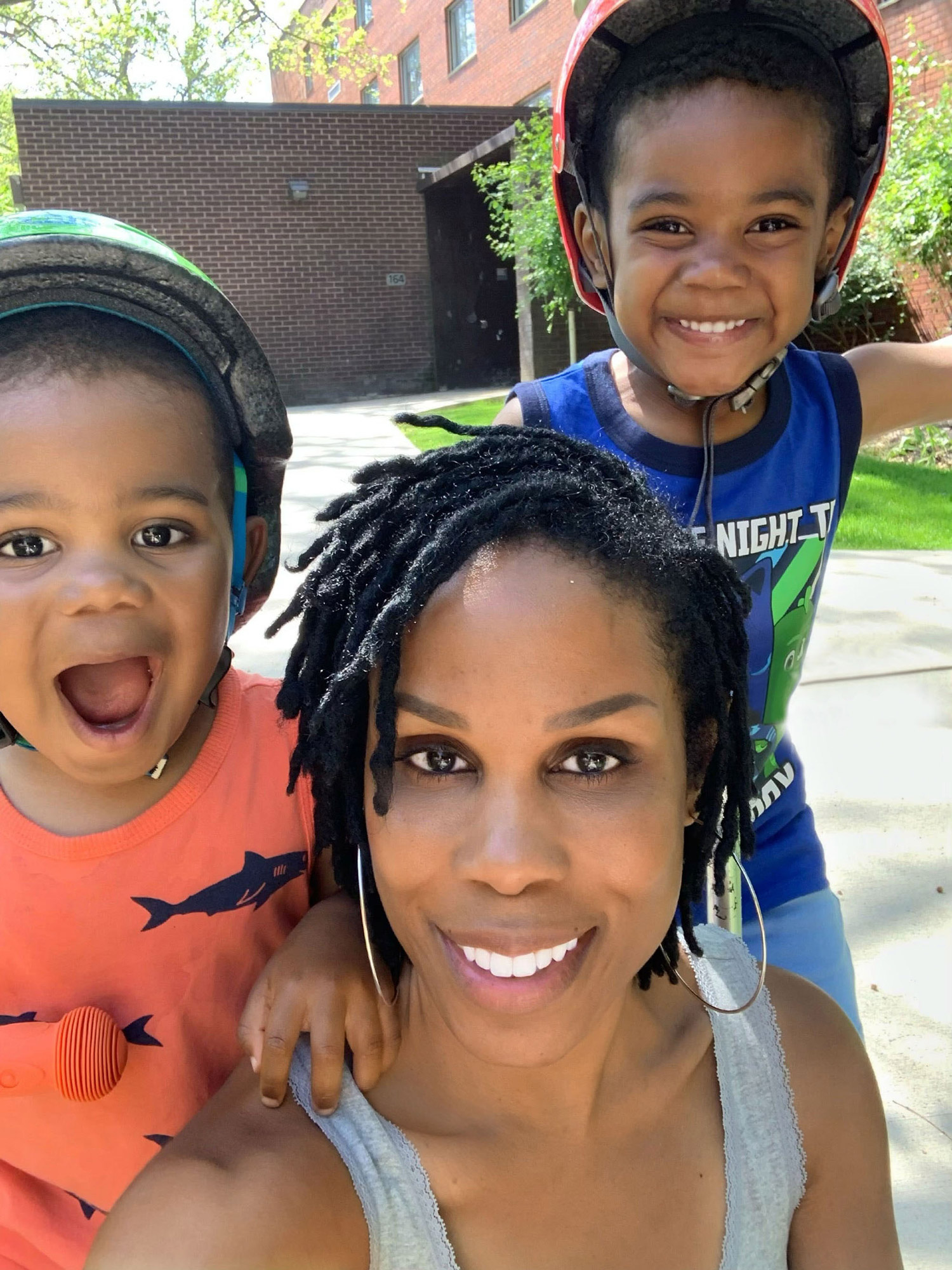
Last spring, as droves of coughing, feverish people came to the Brooklyn, NY, urgent-care clinic where Uché Blackstock, M.D., sees patients, the doctor noticed a problem. Given how limited COVID tests were, doctors were told to test only those who had visited a place where cases were surging or had been in contact with someone confirmed to have the virus. Most of Dr. Blackstock’s white patients met one or both criteria and were tested. Few of her patients of color did, so they were not. But since this scenario was playing out across the country, the effect was troubling: White people were more likely to be tested, so only they could know for certain that they’d been around someone with COVID. The criteria’s bias was clear.
The pandemic has disproportionately impacted people of color, for whom underlying health conditions, higher stress, and a greater likelihood of being essential workers increases risk. This is just the sort of health inequity Dr. Blackstock now fights. The founder of Advancing Health Equity, a consulting firm that partners with health-care companies to help them improve the care they offer people of color, Dr. Blackstock holds workshops and speaking engagements to illuminate the reality of racialized medicine and teach ways to address it.
“I see my role as a trusted leader who is compassionate and thoughtful, and who can amplify the concerns and priorities of my community,” she says. “I’m also purpose driven; my work has to align with my values.” This passion is clear in the sage guidance she’s shared on outlets like C-SPAN, Yahoo News, and Twitter. Black maternal mortality rates, COVID vaccines, how worried people should be about in-person school: Dr. Blackstock has weighed in on all of the above.
Speaking up about systemic issues can be a draining task, especially when it feels as if the dangers are compounding by the day. But the Harvard grad is well poised to muscle through tough times. Her mother, Dr. Dale Blackstock, who raised Uché and her twin sister, Oni, was also a Harvard Medical School alumna; she died at age 47 of leukemia. Losing her mother at such a young age is what inspired Uché not only to pursue a career in medicine but also to dedicate her life to advocating for better health outcomes for people like her mother. (Dr. Oni Blackstock also attended Harvard Medical School, making the pair of sisters the school’s only Black female mother-daughters legacy attendees.)
While our ongoing public health crisis has wearied all health-care workers, Dr. Blackstock included, she sees the need for a brighter outlook as we head into the future. “I’m a parent of two small children”—her sons are 3 and 5—“so I absolutely understand the fatigue parents are feeling,” she says.“I miss when conversations didn’t only revolve around coronavirus. But by nature, I’m an optimist. So I’m focusing on when we get there again.”
This article originally appeared in Parents magazine's November 2020 issue as “The Kindness Hall of Fame.” Want more from the magazine? Sign up for a monthly print subscription here.
Parents magazine
